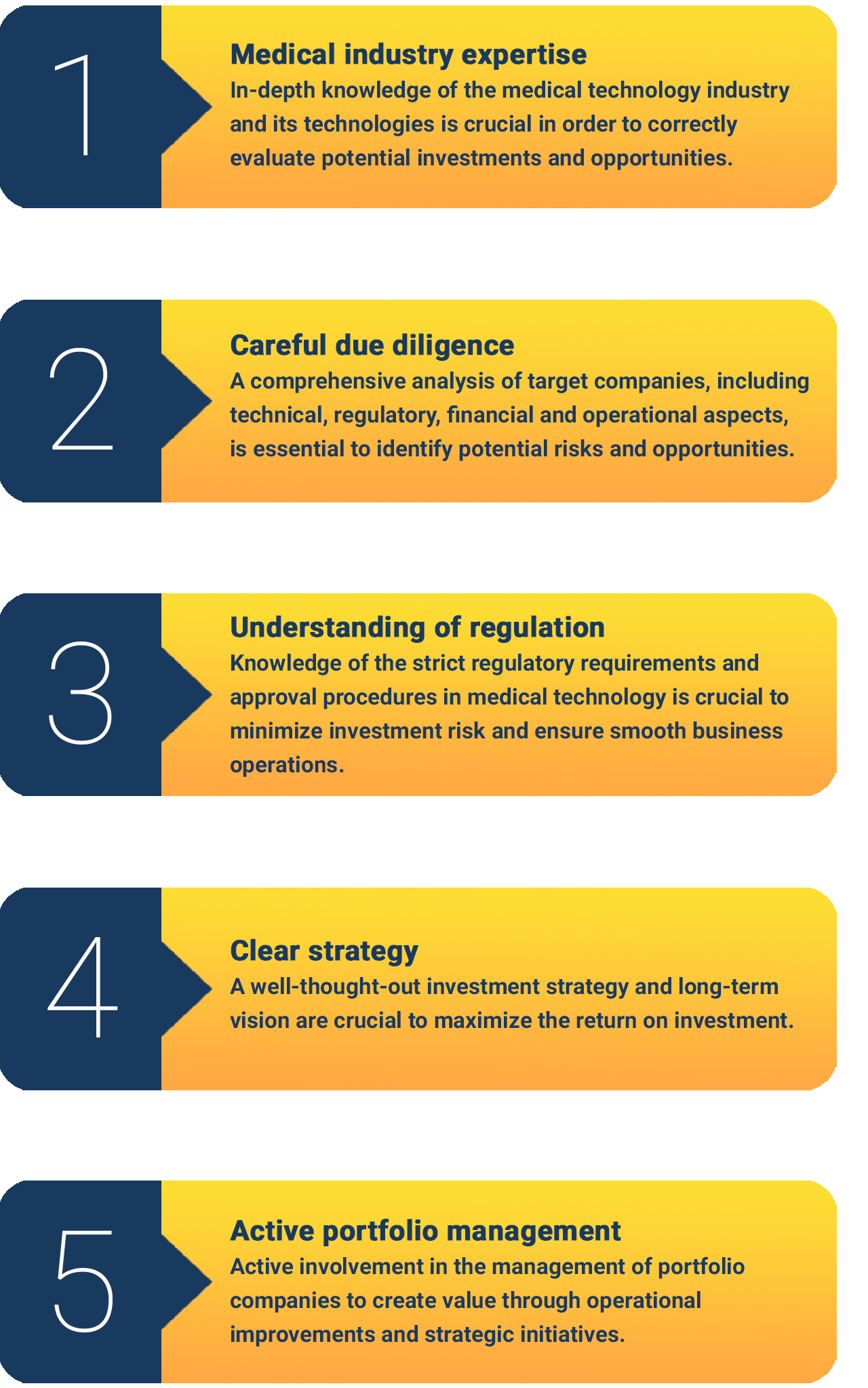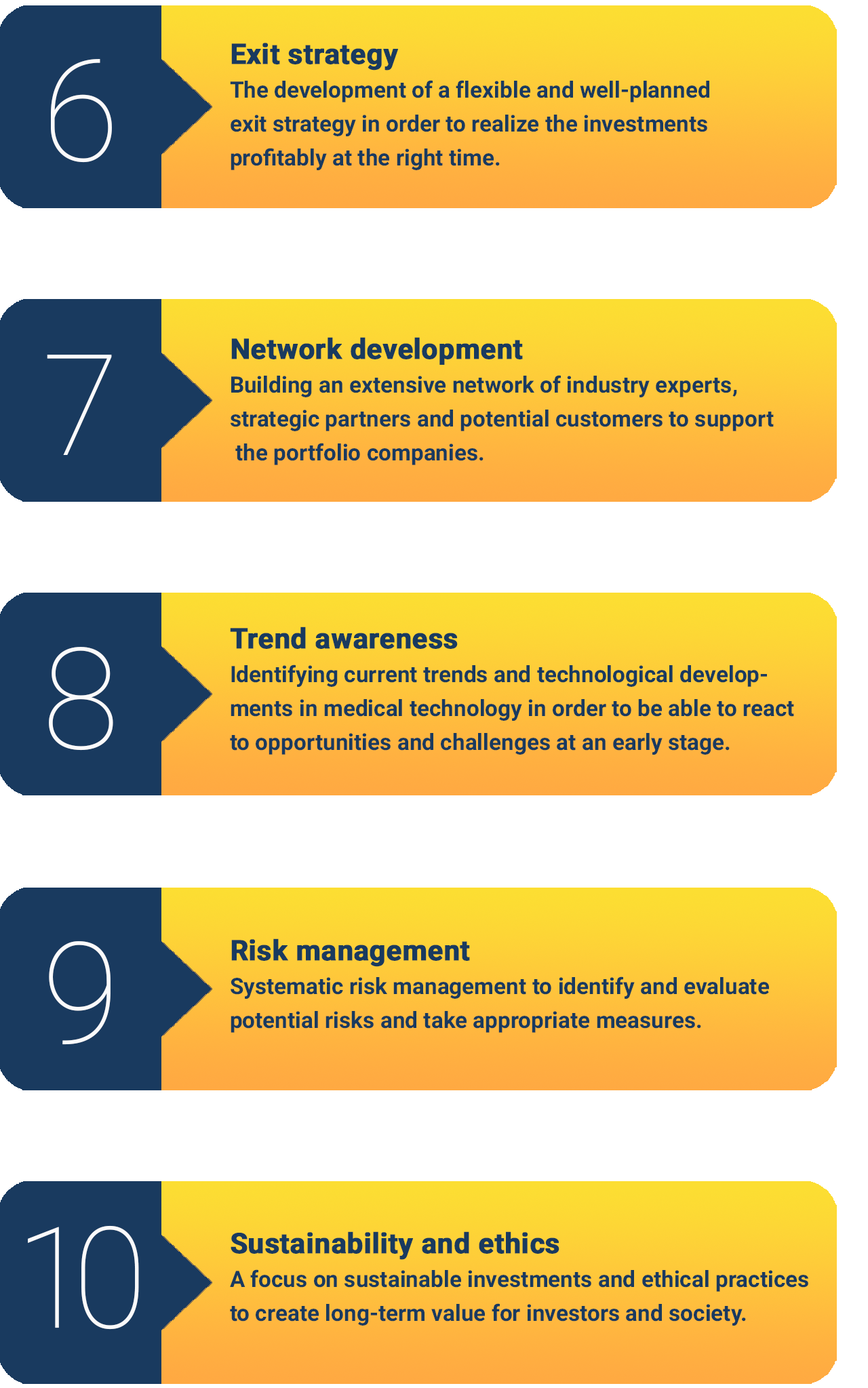
Investments in Start-ups

Investments in Start-ups
DO YOU KNOW YOUR RISKS ?
There are special industry-specific risks in medical technology,
the most important of which are listed here:

Complexity of technology
The medical technology industry is known for its complex technology and regulatory requirements. Due diligence may not fully capture all technical challenges or risks. Technological changes could also affect the profitability of an investment.
Regulatory uncertainty
Medical devices and technologies are subject to strict regulatory requirements and approval processes. Changes in regulatory standards or delays in approval may have a negative impact on the investment.
Market dependency
The success of a company in the medical technology sector often depends on the acceptance of its products and technologies by the market. An unforeseen lack of interest or competitive pressure can have a negative impact on returns.
Liability risks
Medical technology companies can be faced with product liability claims if their products have undesirable side effects or do not function as expected. This can lead to legal and financial burdens.
Dependence on key personnel
The success of a company in the medical technology industry can depend on highly specialized personnel. If key personnel leave the company, this can have an impact on business activities and the value of the company.
Economic fluctuations
The medical technology industry can be affected by economic fluctuations, particularly when it comes to the sale of equipment or technology to hospitals and medical facilities. Economic downturns can affect the demand for such products.
Exit conditions
The successful realization of the investment depends on the availability of suitable exit opportunities at the right time. An unfavorable market environment or unexpected company developments could hinder the planned exit strategy.
Competitive environment
The medical technology sector is highly competitive and new competitors could influence the market. Intense competition could affect the profitability of the invested company. It is essential to be able to reliably assess the current and future market environment.

THE 10 MOST IMPORTANT SUCCESS FACTORS FOR INVESTMENTS IN MEDICAL TECHNOLOGY


Conclusion
It is important to note that private equity funds typically conduct comprehensive risk management and seek to minimize these blind spots throughout the investment and divestment process. Successful execution of due diligence, close management of portfolio companies and a flexible exit strategy are critical elements to managing risk and maximizing potential returns.